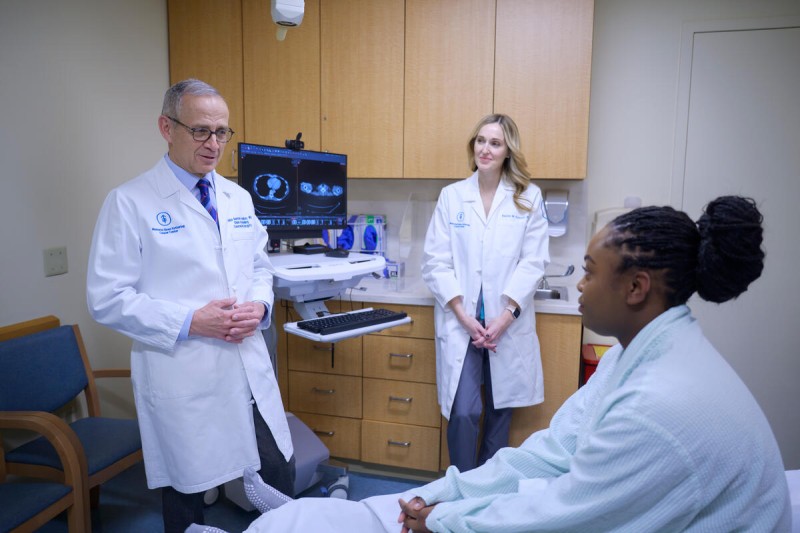
A newly published pooled analysis of the Organ Preservation in Patients with Rectal Adenocarcinoma (OPRA) trial and the CAO/ARO/AIO-12 trial by the German Rectal Cancer Study Group has confirmed the safety and benefits of the watch-and-wait strategy for patients with locally advanced rectal cancer and a good response to total neoadjuvant therapy (TNT).
MSK has been studying the watch-and-wait approach for patients with rectal cancer since the early 2000s. Avoiding total mesorectal excision (TME) and its related side effects, which may include changes in sexual function and needing a permanent ostomy bag, has helped many patients with rectal cancer enjoy a high quality of life and good survival outcomes.
The OPRA Trial
The OPRA Trial was a multicenter phase 2 randomized study (NCT02008656) in which patients with stage 2 or stage 3 rectal cancer received total neoadjuvant therapy (TNT). TME was recommended to all patients with an incomplete response to TNT. Patients with a clinical complete response or near-complete clinical response pursued a watch-and-wait strategy and were followed at frequent intervals.
A previous analysis of OPRA results reported the safety of watch and wait for this patient population. Clinical tumor response grade was associated with all survival outcomes, including disease-free survival (DFS), local recurrence-free survival, distant metastasis-free survival, and overall survival. The results were published in JAMA Network Open in January 2024. (1)
“Most OPRA trial participants with a clinical complete response and a large proportion of those with a near-complete response avoided surgery and had good survival outcomes,” said colorectal surgeon Julio Garcia-Aguilar, MD, PhD, the OPRA trial principal investigator and Chief of the Colorectal Service and the Benno C. Schmidt Chair in Surgical Oncology at MSK.
New Evidence From Pooled Analysis
The new analysis, published in Annals of Oncology online in January 2025, ahead of print, pooled results from the OPRA and CAO/ARO/AIO-12 (NCT02363374) trials. The study included 628 patients — 324 from MSK and other U.S. hospitals participating in OPRA and 304 from hospitals in Germany. (2)
First author Hannah Williams, MD, a gastrointestinal surgeon completing a research fellowship with Dr. Garcia-Aguilar, presented the results at the 2025 ASCO Gastrointestinal Cancers Symposium held in San Francisco the same month.
All patients had stage 2 or stage 3 locally advanced rectal cancer. The OPRA trial allowed patients with a complete or near-complete response to TNT to enter watch and wait and those with an incomplete response underwent TME. By contrast, all CAO/ARO/AIO-12 trial patients underwent TME within six months of completing TNT, regardless of tumor response. (2)
The analysis found no differences in disease-free survival, distant recurrence-free survival, local recurrence-free survival, or overall survival based on treatment strategy or TNT treatment arm. (2)
“The German Rectal Cancer Study Group trial provided an excellent, real-world control group to the OPRA trial. Results of our pooled analysis strengthen the evidence showing that watch and wait is a safe option for patients with an excellent response to neoadjuvant therapy,” said Dr. Garcia-Aguilar.
“It also revealed an opportunity to investigate de-escalation of TNT to reduce unnecessary toxicity, as there were no survival benefits from the longer treatment cycles in OPRA compared to CAO/ARI/AIO-12,” he added.